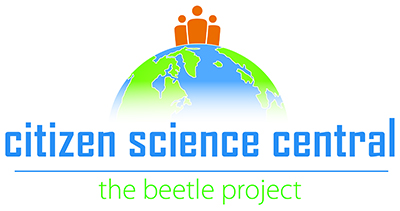
Citizen Science at SUNY Empire State College
SUNY Empire has been granted a Higher Education Grant from the United States Department of Agriculture to create a citizen science project that increases student interest, participation, and retention in science disciplines. The title of the funded project is “An Undergraduate Research Experience: Using technology to monitor Japanese beetles related to climate change, across New York State,” however, the project team affectionately refers to it as “The Beetle Project.”
The Beetle Project is one example of how the Citizen Science Template can be used. In The Beetle Project, students develop a visual, virtual map of the life stages and population density of Japanese beetles across the state of New York. Students make observations and record data regarding:
- The insect life cycle
- Vegetation
- Soil properties and types
- Atmospheric conditions.
They analyze the data using GIS to discern spatial and temporal patterns of beetle life stages across New York, phenological correlations, and climate trends. Participation in the project will enable students to better understand the ways climate change impacts local ecosystems and biodiversity and non-native species.
Outcomes
- Students will learn how to work as a team and communicate within an online open learning environment.
- Students will also learn how to adapt technology and the scientific theory to solve new problems.
- Students will develop an understanding of how climate change impacts regional ecosystems and biodiversity.
- Increase faculty resources for developing new and innovative studies in environmental and agricultural studies.
An Invitation to Participate
The project is easy to incorporate into courses either as a small learning exercise or extrapolated on to be the basis of an entire study. Some of the courses at SUNY Empire State College that this course has been used in include:
- Environmental Science
- Global Climate
- Soil Science
- Physical Geography
- In Our Gardens: Exploring Gardens Through Literature and Science
- People, Places and Plants
- Invasive Species.
Each student that participates in the project creates a user name and password. The project site includes guidelines on how to take data that is consistent with the methods being used by other project participants. It is important that these guidelines are used so that data collected across the state in a variety of settings and courses is comparable. Following established methods helps ensure that the data collected can contribute to our understanding of the ecological processes under investigation.